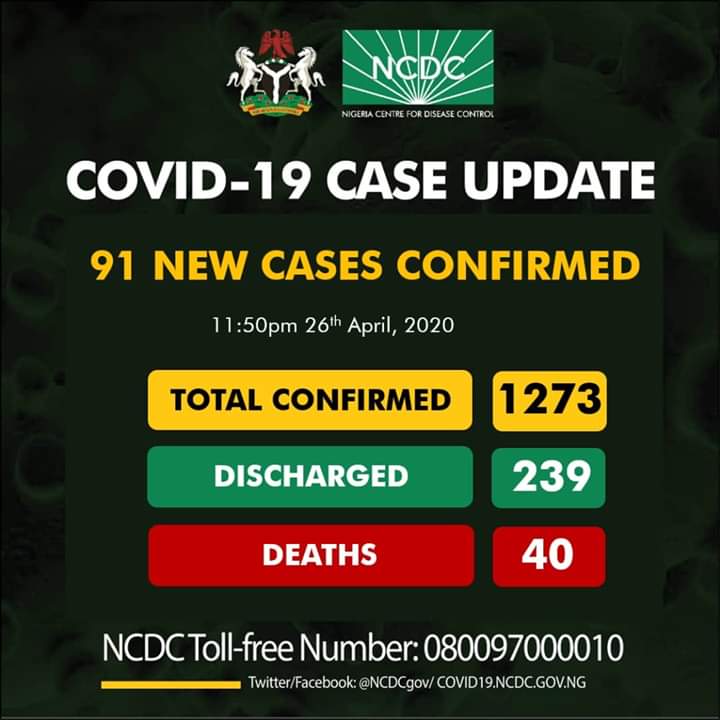THE POLITICAL ECONOMY OF COVID -19: LOCKDOWN OR LIVING WHICH WAY NIGERIA?
BY AGADA STEPHEN MICHAEL
Economic development and societal wellbeing can only be achieved in an environment where multi-culturalism and multi-religiosity are guaranteed (Agada, 2013).
The coronavirus disease 2019 (COVID-19) is no exception from the series of a pandemic that has ravaged the world in the past ranging from the Spanish Flu, Ebola, SARS, Zika among others. The disease an epidemic that has become a global pandemic emerged in a densely populated manufacturing and transport hub in central China and has since spread to various countries and regions.
Covid-19 caught an unprepared world with inadequate and available medical resources especially in countries like Nigeria where billions of Naira budgeted for the Health sector over the years have been mismanaged due to corruption and medical tourism perpetrated by the bourgeoisie class.
In contrast to the emergency of 2013-2016 of the Ebola virus which is more deadly but less contagious, arguably more isolated, and eventually contained in part by richer countries putting money into Africa, COVID-19 presents more interdependent economies with management dilemmas.
It has also surfaced at a time of eroding trust within and between countries with national leadership under pressure from growing societal unrest and economic confrontations between major powers.
Response strategies vary, for example: playing up or down the crises and staying open for business as long as possible versus seeking to reopen quickly. COVID-19 has highlighted tendencies in many countries to deny or cover up red flags to avoid economic or political penalties, but this approach can misfire as shown clearly in the recent surge of unexplained deaths in Kano State, Nigeria. Though no confirmed trace to COVID19 for now, but since the issue of trust and sincerity is difficult in this clime every finger is pointing to COVID19.
COVID-19 has also shown how governance failures may involve inaction or over-zealous action by ill-prepared authorities scrambling to maintain or regain stability. Both ends of the spectrum undermine trust and cooperation among citizens. Centralized control measures may seem necessary to stop or delay the spread of the virus, and compensate for weak individual and community resilience, but may also cause harm. The ruling and opposition parties are accusing each other of playing politics with COVID19and this is what you get when politicians and bureaucrats take over the jobs of Doctors, Nurses, Pharmacists and other health workers.
Social media poses a further challenge to trust as panic spreads faster than pandemics and global platforms amplify uncertainties and misinformation.
Emotionally visceral content from anyone such as data, anecdotes or speculation that spark fear can go viral and reach far more people than measured despite reassuring advice from experts. Even in the absence of human or automated trolls seeking attention or disruption, well-meaning individuals can spread panic worldwide by escalating or misinterpreting early, provisional, or context-free information. Such fear will fray citizens’ trust in governments’ ability to protect them from risk, and increase the likelihood of psychologically defensive and societally damaging measures such as panic-buying and prejudice.
Many African countries have largely copied the above template, to varying degrees. Piece-meal extensions of “stay at home” or lockdown orders as in many western countries have also been copied in Africa. But the question is: can Africa afford lockdowns, and can they be effective? Put differently, given the social and economic circumstances of Africa and the impending ‘economic pandemic’, can Africa successfully and sustainably defeat Covid-19 by copying the conventional trial-and-error template of the western nations?
In confusion and desperation, the world seemed to be throwing any and everything at the pandemic. Recall President Trump’s assertion that hydroxychloroquine “might help”? The evidence so far (from a limited sample) is that it probably actually worsens the disease. The trial and error have left huge human toll and economic ruins, and there is still no solution. (Prof. Charles Soludo, 2020).
Let us be clear: no one can blame state governors for their copy and paste response some weeks ago and till this moment.
No governor would want to be blamed for doing nothing even when ideas are not available or thrown to them from heaven. We expect that the COVID-19 threat will eventually fade, as the Ebola, Zika, and Severe Acute Respiratory Syndrome (SARS) viruses have in recent years.
However, the social-economic impact will still be felt long after the virus fades. For now, the pertinent question remain, is the LOCKDOWN the right approach for Nigeria?
count | 136

Recent Comments
Mwanchuel Daniel PamMarch 8, 2024 at 11:06 pm
Bob WayasNovember 6, 2023 at 5:30 am
JosephNovember 5, 2023 at 3:47 am